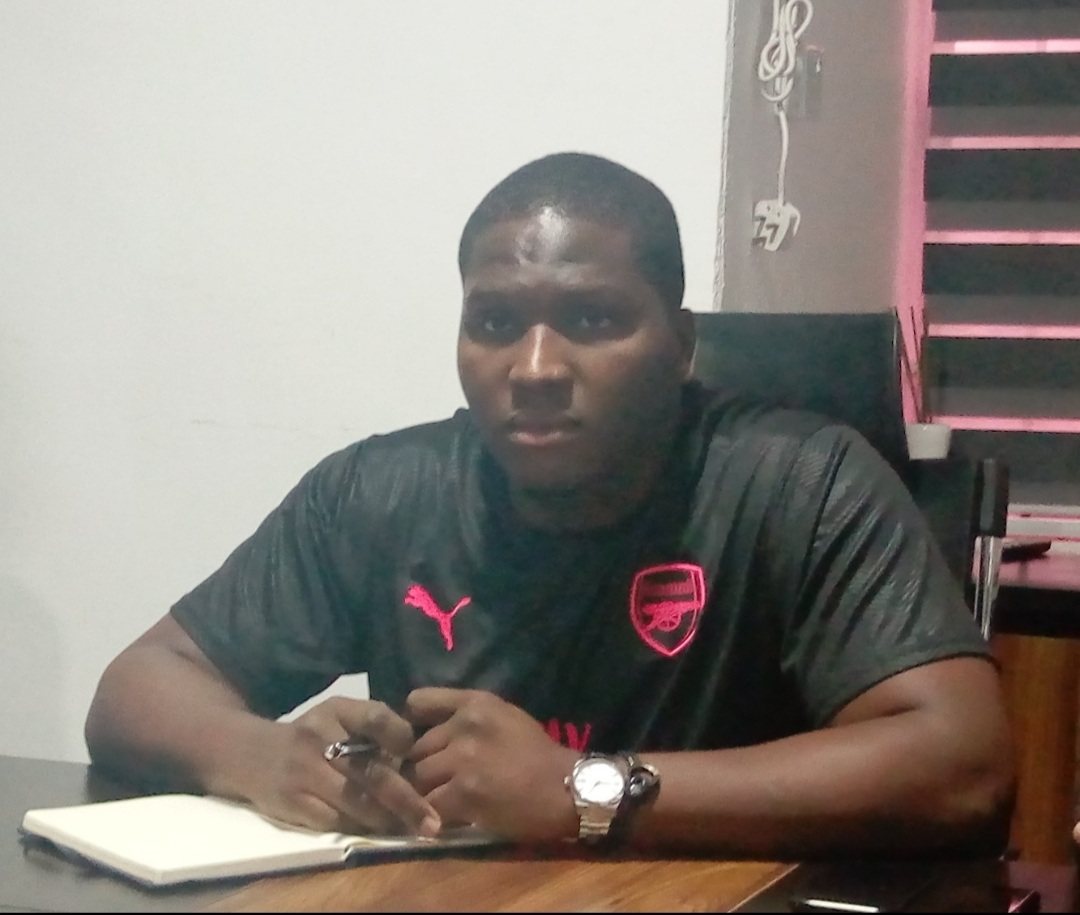By Martin Onuchukwu
The story of Imo State Polytechnic, from its humble beginnings as a monotechnic in Umuagwo to its current stature in Omuma, is one of evolution, resistance, leadership turbulence, and eventual redemption. From 2006 to the present day, the institution has experienced cycles of growth, stagnation, and renewal shaped by the actions—and inactions—of successive administrations.
The Transformative Era: Prof. Anderson Amadioha Imo State Polytechnic became a full-fledged polytechnic in 2006, ushering in an era of expectations under the stewardship of Prof. Anderson as Rector. His tenure was notable for a remarkable increase in student enrollment, attributed to his academic pedigree and administrative experience. However, this growth was not without turbulence. Accusations and unrest brewed among the Academic Staff Union of Polytechnics (ASUP) and Non-Academic Staff Union (NASU), leading to the establishment of a panel of enquiry. In the end, the accusations against him crumbled under scrutiny. Rather than retreat, Prof. Amadioha recruited seasoned professionals, guiding the polytechnic as it transitioned from monotechnic limitations to polytechnic potentials.
Interim Stability and Seeds of Reform: Dr. Eugene Ogu
Upon Prof. Amadioha’s exit, Dr. Eugene Ogu was appointed Acting Rector. Despite not being a close ally of his predecessor, Ogu upheld many of Amadioha’s legacies. His leadership brought accreditation to several programs and ensured continuity in student enrollment. However, his era was cut short in 2011 when political shifts brought in new leadership.
An Era of Division and Controversy: Fr. Wence Madu
The appointment of Fr. Wence Madu, a Catholic priest, initially inspired hope. His spiritual background appeared to be an asset for institutional ethics and discipline. Sadly, this hope turned sour.
Fr. Wence’s tenure introduced what staff described as 'cliquism, injustice, and systemic discrimination.' A culture of segregation emerged: terms like 'new-new,' 'old-new,' and 'old-old' became labels that divided staff rather than united them. Promotions and placements were skewed, over 200 staff were dismissed, and redundant staff were warehoused without duties.
His administration was also accused of corrupt financial practices, including the alleged misappropriation of ₦40 million through fictitious cooperatives, illegal withholding of union dues for three years, and mismanagement of TETFund projects, often executed with questionable quality. Accreditation suffered, salaries were slashed to 70%, and staff morale plummeted.
Multiple campuses were opened—Mbano, Orlu, Ikeduru—without proper planning, with the Mbano campus allegedly used to punish dissenters.
Brief Redemption and Strategic Turnaround: Dr. P.N. Njoku
The polytechnic breathed fresh air in 2019 when Dr. P.N. Njoku assumed leadership. Known for his inclusive and principled approach, he rekindled value systems, sought input before decision-making, and embarked on accreditation renewal efforts. His reforms extended to revamping TETFund administration, rejuvenating the Microfinance Bank, and fostering stakeholder engagement.
Though his tenure was brief, Njoku earned wide admiration for restoring respect, fairness, and order within the institution.
A Return to Regression: Mbadike's Controversial Acting Rectorship
The appointment of Mr. Okechukwu Mbadike during Governor Hope Uzodinma’s early administration marked a return to instability. Widely seen as a surrogate of Fr. Wence, Mbadike’s administration reversed Njoku's reforms, reinstated mismanaged TETFund channels, and supervised what many described as the looting of institutional assets—notably by the then Director of Works, Mr. Basil.
More troubling was the relocation of the Polytechnic from Umuagwo to Omuma, ceding the former premises to the University of Agriculture and Environmental Sciences. Accreditation was not pursued vigorously, student enrollment dropped to all-time lows, and union leaders were harassed under flimsy allegations. The polytechnic teetered once again on the edge of collapse.
A New Dawn: Prof. Kanayo Stephen Chukwuka’s Rescuing Leadership In November 2022, Prof. Kanayo Stephen Chukwuka was appointed substantive Rector. His arrival signaled a turning point. An erudite scholar, seasoned administrator, and internationally reputed scientist, Prof. Chukwuka understood the assignment and hit the ground running.
He reunified the fragmented campuses, tackled the root causes of dwindling enrollment, and secured funds through tireless appeals to the state government. Under his leadership:
– New programs like Architecture and Fine & Applied Arts were introduced.
-Secured accreditation and reaccreditation for all courses in the polytechnic
– TETFund projects regained transparency and were executed with structural integrity.
– ICT infrastructure and state-of-the-art laboratories were upgraded.
– Deans, directors, and heads of departments were appointed with merit and geopolitical equity.
– Staff promotions and placements that had stalled since 2014 were actualized.
– Pension and gratuity reforms were initiated.
– Student hostels were built.
– Lecture series and staff training were revived.
– Academic calendar was stabilized.
– Entrepreneurship and innovation studies up scaled for greater employability.
Despite these strides, elements of resistance remain. Those averse to change refused to accept the realities of the day. A recent outing by the NASU chairman on a local radio station, branding Prof. Chukwuka a “sole administrator,” failed to resonate with the realities on the ground. His inclusive, consultative, and reform-oriented leadership style tells a different story—one of revival and renaissance.
Interrogating the NASU Chairman's Recent Radio Outing
The NASU Chairman extended gratitude to the Governor of Imo State for merging the three campuses of Imo State Polytechnic, ensuring administrative coherence, allocating funds for program accreditations, promoting staff, facilitating prompt salary payments, improving road networks, enhancing security architecture, and creating a conducive atmosphere for increased student enrollment. While these commendations are valid, the true driving force behind these achievements remains the strategic leadership of Prof. Kanayo Stephen Chukwuka.
Prof. Chukwuka’s stewardship has been the bedrock upon which these milestones were built. His ability to galvanize a capable management team—comprising the Acting Bursar with a reputation for financial diligence, a seasoned Registrar, and a distinguished Polytechnic Librarian—ensured that all units worked synergistically to deliver on the polytechnic's mandate. There is no administrative vacuum as suggested. The success story is one of collective effort under transformative leadership.
It is, therefore, misleading to allude that the Rector acts as a sole administrator. On the contrary, Prof. Chukwuka’s consultative and inclusive governance style exemplifies team leadership. The NASU Chairman and others in the community must acknowledge that the appointment of substantive principal officers and the Governing Council is the exclusive reserve of the institution’s Visitor—the Governor. Just as the Governor approved the long-delayed staff promotions from 2014, he is also finalizing measures to give these promotions financial backing.
Staff now enjoy minimum wage with consequential adjustments; pension and gratuity processes are nearly concluded.
TETFund interventions under the current administration have departed from past practices where a single individual managed resources arbitrarily. Today, quality projects are executed under strict supervision with a new ethos of accountability. The amendment of the law establishing Imo
Poly—initiated and driven by Prof. Chukwuka—has unified the campuses, putting an end to the regressive multi-campus system introduced during Fr. Wence’s tenure.
Let it also be emphasized that the Rector and his team deserve praise for their successful lobbying efforts which convinced the Governor to back vital structural and legal reforms. Improvements in telecom services, the maintenance of existing vehicles, and ongoing construction of high-rise buildings underscore the improved management of resources. While national fiscal constraints affect vehicle supply, current assets are well-utilized.
Union leadership must, therefore, rise above cliquism, poor work ethics, and administrative or academic misconduct. They must embrace dialogue, collaborate with the institution’s leadership, and adopt a progressive stance. Only by partnering with Prof. Chukwuka’s management team in good faith can the Polytechnic truly flourish.
Conclusion: The Path Forward
The trajectory of Imo State Polytechnic reflects the Nigerian paradox—rich in potential, but often undermined by poor leadership. From Amadioha to Chukwuka, the institution has endured both degeneration and restoration. What is clear now is that with committed leadership and collective will, Imo State Polytechnic can reclaim its lost glory.
As stakeholders—students, staff, unions, and the government—must rally behind initiatives that promote transparency, equity, and growth. History must not be allowed to repeat itself. The polytechnic has seen the worst; it now deserves the best.
Sidebar: Key Lessons from ImoPoly’s Journey
– Visionary leadership transforms institutions; parochialism destroys them.
– Inclusivity and consultation foster harmony and productivity.
– Mismanagement of educational funds like TETFund kills credibility.
– Fragmentation of campuses must be backed by infrastructure and planning.
– Spiritual titles do not equate to ethical administration.






